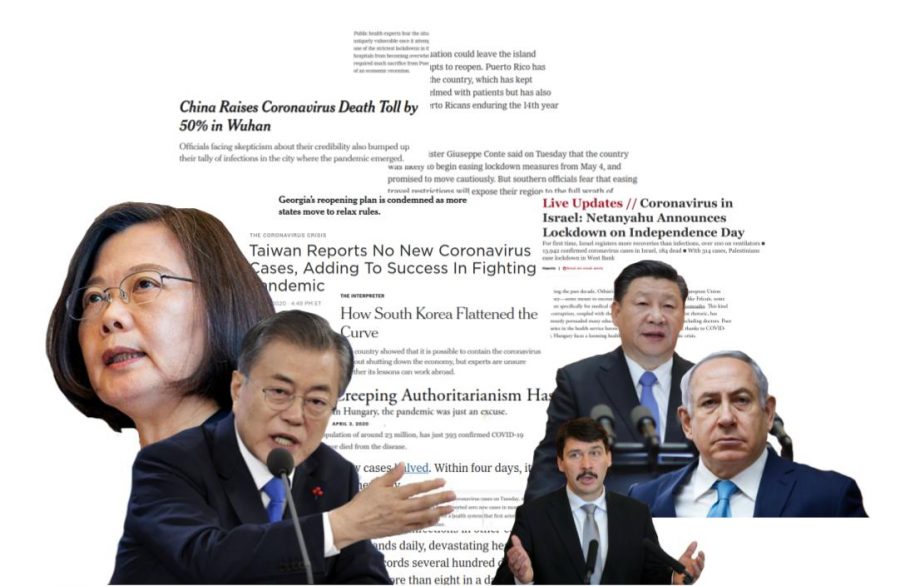On Authoritarianism: Why Controlling a Pandemic Does Not Require Limits on Personal Freedoms
The notion that authoritarian governments are better at handling the spread of infectious diseases is a dangerous misconception.
April 22, 2020
The rise of the strand of coronavirus known as COVID-19, and the resulting pandemic, has brought serious debate over how to balance public health and personal freedom. Amongst the scramble to control the spread of the coronavirus, the idea that authoritarian states are better suited to defend against the spread of diseases has many leaders, such as those in Hungary and Israel, using the crisis as justification for increased consolidation of power. The notion that authoritarian governments can better handle the spread of diseases such as the coronavirus is both misleading and distracts from an actual solution. An appropriate response extends further than simply shutting down life for a while, and must also include implementing social safety nets that can prevent the growing unemployment crisis that we have begun to face.
China is often cited as an example of how draconian rule can limit the spread of a disease. Through widespread surveillance, swift action from the government, and harsh punishment for disobedience, the apparent stagnation and decline of the rate of cases in China seems to prove a victory for authoritarianism. While it is an impressive achievement that the Chinese government has kept cases relatively low for such a dense and highly populated country, the methods used to control the virus reveal flaws of authoritarian rule rather than strategies that democracies should employ. In fact, the inability of China to act on the concerns of its citizens early in the stages of the outbreak made its response to the coronavirus criminally slow, and largely contributed to the severity of the pandemic we are dealing with today.
The denial of independent information, such as early warnings from Wuhan doctor Li Wenliang who later succumbed to the virus, demonstrates a critical fault of authoritarianism. Threatened with repercussions and often imprisonment, the failure to allow citizens to receive firsthand information enabled five million Wuhan residents to leave for the lunar holidays, and delayed quarantine until December, when the spread of the coronavirus was undeniable. Models from the University of Southampton show that, had China listened to initial warnings and implemented preventative measures, it could have reduced eventual cases by 95%, certainly changing the current situation globally, or perhaps avoiding it entirely.
In fact, many countries who are currently faring the best and have combated the virus the most effectively are democratic. For example, South Korea and Taiwan have contained the spread of the virus despite being both geographically close to China. These two countries implemented many of the same strategies used in China, such as widespread fever checks, large-scale testing, and travel bans, and did so arguably faster and more effectively than China. Their ability to stop the spread of the coronavirus through democratic means lay in the population’s trust in their government and a fast and partisan response.
Authoritarian regimes aren’t unique in their success in containing diseases. The difference lies in the abilities and willingness of any government to act, along with the trust of its people. If the United States had an appropriate and timely response instead of dismissing warnings, and if Italy had begun shutting down public sites after confirmed cases arrived, the severity of the situation could have been avoided.











